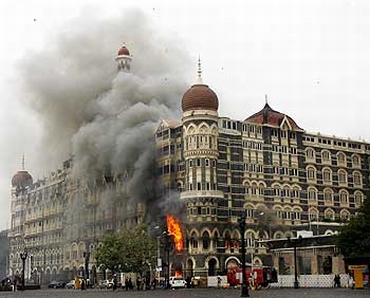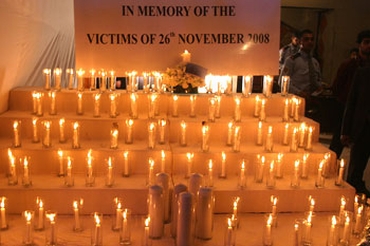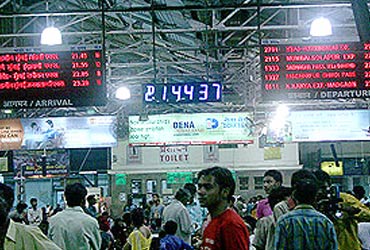Photographs: Rediff Archives
Pakistan is not doing enough to bring the perpetrators of the 26/11 attack to justice, former British foreign secretary David Miliband has stated, confirming the Indian position on this issue.
"I am the politician who went to Islamabad in January 2009 and said, without fear or favour, in respect to the Mumbai bombings, those people need to be put on trial; and if they are prosecuted, they need to be punished. And I still say publicly, not enough has been done to bring those trials to a conclusion," he said at the Council on Foreign Relations, a Washington-based think tank.
"On the one hand I say we should be engaging with Pakistan. On the other hand, I feel comfortable in speaking very plainly about the responsibilities that they have. It it's true that the LeT is developing global ambitions for its terrorism and its own capacity to do so, as well as regional ones, we have to be even more insistent on the need to roll up that infrastructure," Miliband said.
The Laskar-e-Tayiba, through its front organisation, provides a huge amount of welfare and other civil society outfits, "but they move into the vacuum," he noted.
'A civilian government may last its full term'
Image: David MilibandMiliband, who will be travelling to Pakistan in May, said the situation in the country is challenging.
"On the one hand, a civilian government may well last its full term in Pakistan and be succeeded by other civilian governments. That is not to be sneezed at. That is a significant thing," he said.
"Secondly, one of the things that (former) President (Pervez) Musharraf did was to open up the media. If you want to think about the flowering of civil society, the opening of the media, both in the blogosphere and in print, is serious and good," he said.
Miliband said one of the most chilling things he has heard in and read over the last few months is the idea that the US has a choice about whether or not to sever its links with Pakistan.
'It's very important that Pakistan understands'
Image: A memorial for the victims of 26/11"Because if you think it's difficult, frustrating, innovating, dangerous dealing with Pakistan at the moment as a partner, try fulfilling your own interests in South Asia without Pakistan as a partner," he said.
"I believe it's very important that Pakistan understands what is expected of it, its responsibilities, but also has its rights respected as well. It is easy to say that in theory, but actually it's meaningful in practice," he said.
Pakistan is a country which needs the international community, including its neighbours, to stand with it on security, trade and institution building, Milband noted.
'I have criticised the Pakistani government'
Image: CST station, one of the sites of 26/11 attack"And I think that President Obama's outreach to Pakistan in his two leaked letters to President Asif Ali Zardari was an important step," he said.
The former foreign secretary said Obama was proposing a balanced strategic relationship between the US and Pakistan to replace the unbalanced -- essentially military-only -- ties, and wanted individual leader-based relationship rather than institution-based links.
"I have criticised the Pakistani government for the way in which it failed adequately to respond to the significance of the outreach that President Obama made. But I think it's very important that you continue to engage pro-actively on the civilian and the military side in Pakistan, because there won't be stability in South Asia to serve our interests unless Pakistan is engaged seriously," he added.





article